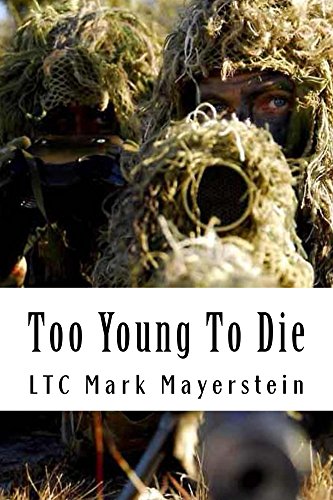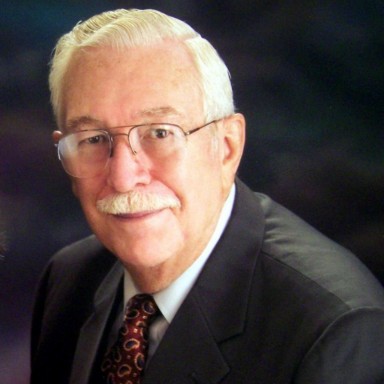Date of interview: 27 March 2020
Staff Sergeant John H. Davis is a decorated combat veteran with two tours in Afghanistan. He spends his time advocating for veteran causes and has received congressional and legislative recognition. John is a former VA employee, Student Veterans of America officer and is a youth coach for American Ninja Warrior classes. John also has experience teaching English in Thailand and History to incarcerated youth in New York. John enjoys whiskey, getting tattoos, riding motorcycles, volunteering and working out. John has BA from St. Joseph's College and is a graduate student at Harvard. John is America and you are too.
MWSA: How did you find out about MWSA?
John H Davis : I found out about MWSA when I was thinking about submitting my book for awards. I wanted to get my book out to the widest audience possible and when I looked for veteran book awards MWSA popped up! After reading about the organization, researching some of the benefits and reading about some of the authors I wanted to submit my book for a potential award.
MWSA: What made you want to write Combat To College?
John H Davis : I wanted to earn some extra money while I was in college and the VA had a work-study program for veterans at my school. My job was to help out other veterans in their educational goals and provide resources about benefits as well as mentorship. This led to me sitting down with veterans who were struggling with various college challenges and working through them. The book is a compilation of those lessons to give veterans strategies to be successful in college. I heard and listened to the problems veterans were having and I knew firsthand the problems I had to wrestle with.
MWSA: Why do you think veterans struggle in college? What are some of the reasons why this occurs?
John H Davis : Veteran students are often older and being older than traditional students often means more responsibilities. They have families, mortgages, jobs, life experiences. On another side, they also are more likely to have PTSD and other mental and physical problems. Another issue I want to emphasize is that veterans go to school usually right when they get out of the military so they are transitioning out of military lifestyle and it takes time to learn how to be a normal person again.
The military is such a rigid and structured environment and college is the total opposite. This drastic shift is difficult for veterans to deal with and a reason they drop out. There are many more reasons and the book lays out these challenges and strategies to navigate them.
MWSA: Why don’t more veterans go to college in the first place? Many don't even use the educational benefits they earned in service.
John H Davis: This is another reason this book needed to be written. To give veterans confidence that they can go to college AND be successful there. Some veterans use the escape by saying things like "I don't need to go to college, I went to Iraq" and because of fear of failure, fear of fitting in with other students and not knowing what they want to do after service. By not having a plan.
MWSA: How important is having a plan when you get out?
John H Davis: You wouldn't run a military mission without a plan. When I was in Afghanistan planning patrols, air assault missions and high-value target captures we had complex plans and backup plans and did everything we could to ensure the mission’s success.
The weird thing about getting out of the military is that you are usually more focused on getting out then what you are going to do once you get out. So you are looking backward and not forwards, then boom your in the world trying to figure your life out.
The bottom line is that your plan of action when you separate from the military is going to dictate whether you live out your dreams or your nightmares.
MWSA: The book says to use your "military mentality in the classroom." What does that mean?
John H Davis: The military mentality gives student veterans an advantage in college. Some of the simple things the military ingrained in you gives you an edge. Simple things like being on time, being disciplined and your military experiences are things you need to embrace in college. I learned in college that it isn't always the smartest people that get the highest grade or find the most success in life, it's the people who work the hardest. And in the military, you learned how to work hard. In the military you paid attention, showed up every day and put your best effort in because lives could depend on it. If you take that attitude and apply it to your education, you are going to find success.
MWSA: Thanks for talking to us, is there anything you want to add to your message?
John H Davis: I firmly believe that if veterans went to college at higher rates AND graduated at higher rates then PTSD, depression, alcohol and drug problems, homelessness and suicide would all decline in the military community. As soldiers, we learn to be on the same team and we shouldn't abandon that team mentality just because we aren't actively serving anymore. We all have a responsibility to help each other and just as importantly help ourselves.
What I mean by that is that veterans will run across a battlefield to save a friend but often won't pick up a phone to save themselves. So pick up my book, go to college and reach your potential.

![61acrdrvZuL._US230_[1].jpg](https://images.squarespace-cdn.com/content/v1/559a3339e4b059a64f95b0ae/1585336531089-DIVU79217RURLAAKYC5P/61acrdrvZuL._US230_%5B1%5D.jpg)
![71TkXMzsoiL.SR160,240_BG243,243,243[1].jpg](https://images.squarespace-cdn.com/content/v1/559a3339e4b059a64f95b0ae/1585336847224-6YL1YB4WJRDEM4O7A4U0/71TkXMzsoiL.SR160%2C240_BG243%2C243%2C243%5B1%5D.jpg)

![51jU1sp3EVL._SX331_BO1,204,203,200_[1].jpg](https://images.squarespace-cdn.com/content/v1/559a3339e4b059a64f95b0ae/1582992182630-V9OGYB0H0SLEVYRKMBTC/51jU1sp3EVL._SX331_BO1%2C204%2C203%2C200_%5B1%5D.jpg)
![cover-768x1128[1].jpg](https://images.squarespace-cdn.com/content/v1/559a3339e4b059a64f95b0ae/1579712593633-9URGN7EAV03KB3F97W1T/cover-768x1128%5B1%5D.jpg)



![51lvl7Sd-tL._SX326_BO1,204,203,200_[1].jpg](https://images.squarespace-cdn.com/content/v1/559a3339e4b059a64f95b0ae/1573236670404-WT8CMTN9I4IO48NJSBKH/51lvl7Sd-tL._SX326_BO1%2C204%2C203%2C200_%5B1%5D.jpg)

![416OVmuA7+L._SX332_BO1,204,203,200_[1].jpg](https://images.squarespace-cdn.com/content/v1/559a3339e4b059a64f95b0ae/1572363307389-9IGSO0E9NKQE2SMDTBWQ/416OVmuA7%2BL._SX332_BO1%2C204%2C203%2C200_%5B1%5D.jpg)



![61--8Dzjl2L._US230_[1].jpg](https://images.squarespace-cdn.com/content/v1/559a3339e4b059a64f95b0ae/1567012770670-CZYMRZZS8BBA9GJADS79/61--8Dzjl2L._US230_%5B1%5D.jpg)








![51qKDzSELEL._SX326_BO1,204,203,200_[1][1].jpg](https://images.squarespace-cdn.com/content/v1/559a3339e4b059a64f95b0ae/1548626553435-KUWX45JAJE5DKIEWDTJN/51qKDzSELEL._SX326_BO1%2C204%2C203%2C200_%5B1%5D%5B1%5D.jpg)

![guiding-missal[1].jpg](https://images.squarespace-cdn.com/content/v1/559a3339e4b059a64f95b0ae/1547936306743-9L311QZ5LRH78I26ELIU/guiding-missal%5B1%5D.jpg)

![2487183[1].jpg](https://images.squarespace-cdn.com/content/v1/559a3339e4b059a64f95b0ae/1547511669992-W3IK3Q6FNP79THYYNIWO/2487183%5B1%5D.jpg)
![410o1bzdLNL._SX384_BO1,204,203,200_[1].jpg](https://images.squarespace-cdn.com/content/v1/559a3339e4b059a64f95b0ae/1547512229216-JCBYRP2G3KD9FLIE05S9/410o1bzdLNL._SX384_BO1%2C204%2C203%2C200_%5B1%5D.jpg)



